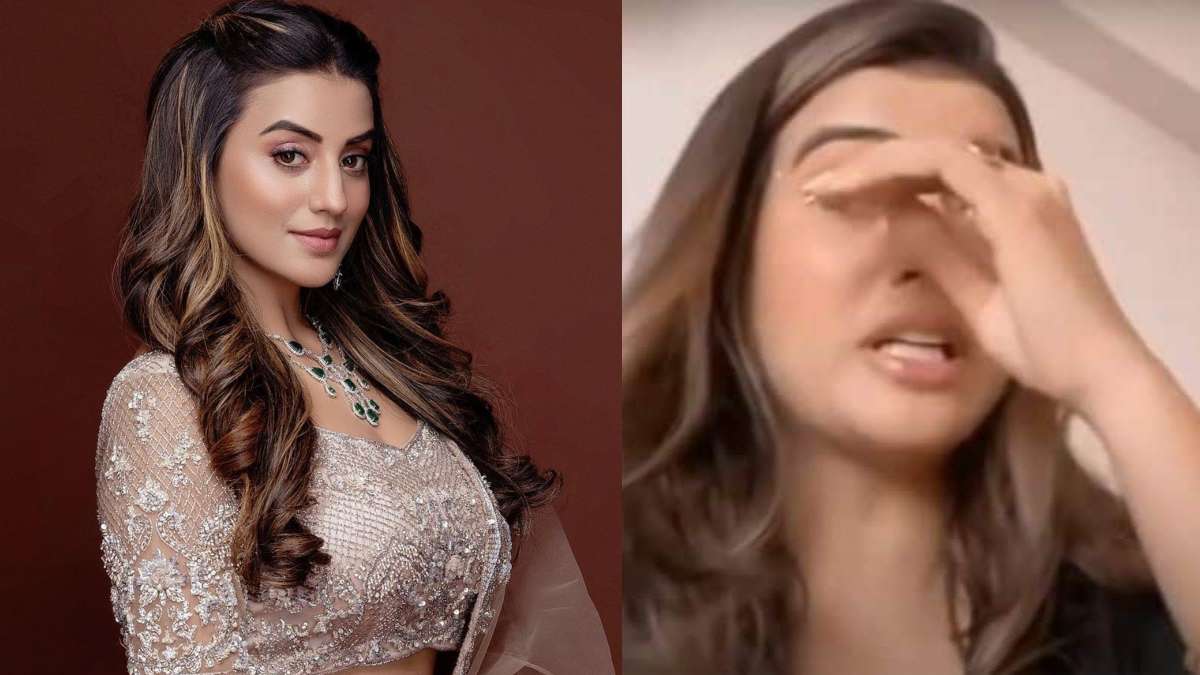MMS Leaks & Scandals: Exploring The Controversies
Is privacy truly a privilege in the digital age, or has it become an antiquated concept, eroded by the relentless tide of online exposure? The proliferation of leaked private videos, or MMS scandals, involving both public figures and ordinary individuals, paints a stark picture of a world where the boundaries of personal space are constantly being trespassed, and the consequences can be devastating. The recent controversies surrounding alleged private videos involving individuals like Seema Haider, Minahil Malik, and Gungun Gupta underscore the pervasive nature of this issue, sparking outrage, igniting debates about ethics, and demanding a critical examination of our collective responsibility in the digital sphere.
The landscape of online content has become a treacherous terrain for those seeking to maintain their privacy. The rise of social media, coupled with the ease of digital recording and dissemination, has created a perfect storm for the unauthorized sharing of intimate content. What was once a private moment, captured on a phone or webcam, can now become fodder for online gossip and public shaming, impacting individuals and the collective conscience.
The focus here is not only on the technical aspects of how these videos are leaked and distributed. It includes the impact on the people involved, the social implications of such events, and the legal and ethical dimensions that must be addressed.
| Subject | Details |
|---|---|
| Name | Seema Haider (as per viral claims) |
| Alleged Incident | Involved in an alleged MMS video with her husband, Sachin. |
| Context | Became a hot topic of controversy online |
| Current Status | Unconfirmed, generating widespread online discussions and speculation. |
| Relevance | Highlights the vulnerability of public figures to privacy breaches and the impact of viral rumors. |
Reference: (This information is based on media reports and social media trends and does not represent a definitive account of events. Authenticated information can be found on verifiable media outlets like NDTV.com etc.)
The incident at Chandigarh University in Punjab, where leaked videos of over 60 girls sparked massive protests, serves as a harrowing example of the far-reaching consequences of such breaches. The university campus in Mohali was rocked by protests as students demanded justice, prompting the university to promise strict action. The police, however, initially denied that the videos were leaked, illustrating the complexities of accountability in these situations.
The Chandigarh University incident is one of many that shed light on the specific risks women face, especially in an environment where they are under constant surveillance. The revelation that a female student allegedly filmed other women in a hostel bathroom underscores the insidious nature of these privacy violations. Incidents like these, where a hidden camera was found in a hostel toilet at Gudlavalleru Engineering College in Andhra Pradesh, reveal the calculated and systematic nature of these attacks on privacy.
| Incident | Details |
|---|---|
| Location | Chandigarh University, Punjab, India |
| Nature of Breach | Alleged leak of objectionable videos of female students. |
| Response | Massive protests, university promises action, police denial. |
| Impact | Distress, invasion of privacy, allegations of misbehavior. |
| Legal Action | One student and two others arrested. |
Reference: NDTV.com
The case of Mona Singh, whose private MMS clip was leaked in March 2013, provides a glimpse into the long history of such incidents. Singh confirmed that the clip was morphed and filed a complaint, highlighting the potential for manipulation and defamation. The incident further underscores the devastating impact of such actions, and the lasting effects on personal and professional reputations.
The online world has made it easier than ever for the malicious distribution of private content. The speed at which these videos go viral, and the wide reach that platforms offer, only serve to compound the damage. Platforms and social media companies need to take more proactive steps in this regard.
The cases of actors, influencers, and public figures, are perhaps even more public. The alleged leak of a private video featuring MTV Splitsvilla X5 stars Deekila Sherpa and Aniket Lama, further illustrates how the issue transcends borders and different entertainment industries.
| Incident | Details |
|---|---|
| Involved | Mona Singh |
| Incident | MMS clip leaked |
| Details | Clip confirmed as morphed |
| Response | Complaint filed |
| Legal Status | The specific status of this incident's legal outcome is not specified, however, the filing of a complaint suggests legal action was undertaken. |
Reference: Hindustan Times
The case of Minahil Malik, the Pakistani TikTok star, provides a modern illustration of the speed with which information can spread and how rapidly public sentiment can shift. Maliks dance video, which went viral, was followed by allegations of an MMS leak, showcasing the unpredictable nature of online fame. Her experience, like that of Maryam Faisal, whose MMS also leaked online, reveals the risks for digital content creators, and the challenges they face in maintaining their privacy.
There are significant and valid concerns around the exploitation of images, and the spread of non-consensual intimate images. It is crucial to look at the larger social and cultural factors that contribute to the phenomenon.
| Person | Details |
|---|---|
| Name | Minahil Malik |
| Profession | Pakistani TikTok star |
| Alleged Incident | Involved in alleged MMS leak controversy. |
| Recent Activity | Dance video went viral; |
| Backlash | Amidst controversy, she is again making headlines. |
Reference: (This information is based on media reports and social media trends. Verified information should be checked on media outlets.)
In addition to the immediate distress caused by these leaks, the long-term effects on individuals' lives can be profound. Reputation damage, emotional trauma, and social stigma are common outcomes. The incidents are not isolated events but are rather a symptom of a larger systemic problem that needs a multifaceted approach.
The Indian influencer Gungun Gupta is another individual who has been embroiled in controversy over an explicit video. The circulation of such content prompts a crucial conversation about consent, exploitation, and media ethics. It is a reminder that we must establish clear rules on how content is generated, shared, and consumed.
The debate around privacy involves not just the actions of those who record and share private content. It also extends to the responsibilities of social media platforms and search engines. These platforms often serve as the primary vehicles for the dissemination of this content.
| Name | Details |
|---|---|
| Person | Gungun Gupta |
| Profession | Indian Influencer |
| Alleged Incident | Circulation of an explicit video |
| Response | No specified response, as such. |
| Relevance | Highlights the intersection of consent, exploitation, and media ethics. |
Reference: (This information is based on media reports and social media trends. Verified information should be checked on media outlets.)
The legal landscape around these issues is evolving, but often lags behind the rapid pace of technological change. Many countries are working to strengthen their laws on cyber security, revenge porn, and online privacy. Enforcement also remains a challenge, given the global nature of the internet and the difficulty of tracking down perpetrators.
The incident involving Prajwal, whose father and grandfather belong to the Janata Dal (Secular) party, illustrates how political affiliations can also become intertwined in these scandals. The implications of such incidents are very wide. It becomes a reflection of the changing nature of political discourse and the intrusion of the public sphere into private lives.
The impact of social media, and how people are using it, is a factor here. From Katrina Kaif to Kareena Kapoor Khan, many Bollywood celebrities have had private videos leaked online. This has highlighted the urgent need for improved data protection and personal privacy online. This also speaks to the ethical standards within the media, and the importance of respecting consent and protecting personal data.
| Person | Details |
|---|---|
| Person | Prajwal |
| Relationship | Father and grandfather belong to Janata Dal (Secular) |
| Relevance | Illustrates the intersection of privacy breaches and political affiliations |
| Implications | Raises questions about political discourse and privacy |
| Context | Linked to current national elections |
Reference: (This information is based on media reports and social media trends. Verified information should be checked on media outlets.)
The case of the hidden camera in the hostel toilet at Gudlavalleru Engineering College, Andhra Pradesh, serves as a reminder that the violation of privacy occurs in the offline world as well. This underlines the need for increased vigilance, and the application of rigorous ethical and legal protocols. This incident, where recordings were secretly sold to some students after being leaked, also serves as an example of the violation of privacy.
The case studies reveal a complex web of factors contributing to the pervasive nature of private video leaks. These include the widespread availability of recording devices, the anonymity afforded by the internet, the lack of effective regulations, and the voyeuristic nature of some online communities. Addressing this problem requires a multi-pronged approach.
Looking ahead, the emphasis must be on better protections. This starts with legislative measures, and goes all the way to ethical guidelines and individual responsibility. The legal system must have appropriate laws and regulations against cybercrime, non-consensual pornography, and data protection.
Further, there needs to be an increased awareness of online safety and digital literacy. This involves educating individuals about the risks of sharing personal information online, and training them to recognize and report instances of privacy breaches. The role of educational institutions in promoting digital literacy is critical.
More specifically, social media platforms must assume a more significant role. This can include more robust content moderation policies, and the rapid removal of illegal and harmful content. This will require the development of advanced technologies for identifying and removing offensive material. It will also mean working with law enforcement agencies to investigate and prosecute those responsible.


